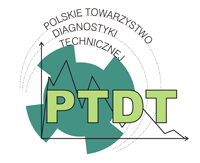Assessment the effect of skidding techniques on the ecological efficiency of the skidding tractor
1
University Yakut State Agricultural Academy, Yakutsk, Russian Federation
2
Perm National Research Polytechnic University, Perm, Russian Federation
3
Ukhta State Technical University, Ukhta, Russian Federation
4
Northeastern Federal University named after M. K. Ammosov, Yakutsk, Russian Federation
5
Don State Agrarian University, Novocherkassk, Russian Federation
6
Federal State Budget Educational Institution of Higher Education "Petrozavodsk State University", Petrozavodsk, Russian Federation
7
University Moscow State Technical University N. E. Bauma.
Submission date: 2020-04-05
Final revision date: 2020-07-10
Acceptance date: 2020-07-13
Online publication date: 2020-07-16
Publication date: 2020-09-02
Diagnostyka 2020;21(3):67-75
KEYWORDS
TOPICS
ABSTRACT
The study is focused on establishing a new approach to assess the soil deformation and compaction processes under the influence of individual components of the skidding system such as forwarder, limbs, butts, and tops of tree-lengths in high latitudes, permafrost soil, and forests of the cryolithic zone. This is particularly relevant with respect to global climate change and vulnerability of high-latitude forest ecosystems, as well as the increasing need to reduce the environmental consequences of human activities. Skidding is the most environmentally harmful operation in forest harvesting, which requires optimization as a matter of priority. Extensive studies emphasize the importance of minimizing the ecological impacts in harvesting processes, but a relatively small amount of works was performed on studying the skidding systems. In the meantime, careful consideration of soil conditions and sustainable route planning can significantly reduce the negative consequences.
We process personal data collected when visiting the website. The function of obtaining information about users and their behavior is carried out by voluntarily entered information in forms and saving cookies in end devices. Data, including cookies, are used to provide services, improve the user experience and to analyze the traffic in accordance with the Privacy policy. Data are also collected and processed by Google Analytics tool (more).
You can change cookies settings in your browser. Restricted use of cookies in the browser configuration may affect some functionalities of the website.
You can change cookies settings in your browser. Restricted use of cookies in the browser configuration may affect some functionalities of the website.


